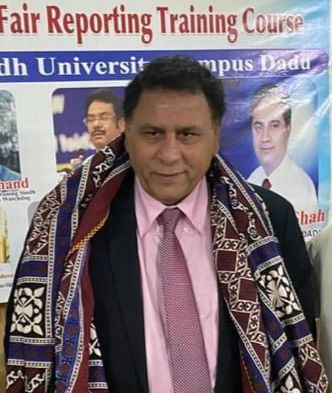Accountability in the governance system is necessary
By:Farooq Mirza
Officials claim that a country has progressed in terms of economic development. In reality, the depreciation of the rupee against the US dollar, high inflation, energy crisis, and frequent load-shedding have all disrupted the country’s economy and people’s lives.
Dwindling foreign exchange reserves cause this crisis when a country’s forex expenditure becomes higher than its forex income. When a higher demand for the dollar outweighs forex inflow, the value of the rupee against the dollar keeps falling, causing a crisis in the import of necessary fuel or raw materials too.
Although the officials continue to blame world economic conditions for the crisis, the issues of growing budget and trade deficit, money laundering, expensive development projects, using the forex reserves for infrastructure projects, and increasing import dependency in the energy sector are the main reasons.
If the events, decisions, and processes behind the economic phenomenon were not political and there were minimum accountability and an effective democratic process in the country’s governance system, these issues would not have existed year after year.
Due to a lack of accountability, in development projects, corruption takes place and the development cost rises. Thus, embezzlement of crores of rupees under political patronage occurs and the money earned through corruption goes abroad through money laundering.
Billions of losses happen because traders under-invoice the values of import-export goods to avoid taxes and/or to move money out of the country. If the officials had been accountable to the people, these incidents of corruption and money laundering could have been minimal.
The officials also fail to tax the rich adequately, and instead help them grow through different incentives. Thus, tax collection in the country as a percentage of GDP is stuck at the lowest.
As a result, the budget deficit increases, but that does not stop officials from taking up costly development projects one after another. To fund these projects, they take loans from various domestic and foreign sources, which in turn puts more pressure on the economy.
One of the reasons behind the forex reserve crisis is that foreign loans are used to fund costly and wasteful projects that do not generate enough forex earnings to cover the reserve deficit.
A common trend in megaprojects is abnormal time and cost overruns. Due to planning errors, irregularities, and corruption, the costs escalate repeatedly. This trend has made our dear homeland home to some of the world’s most expensive roads and highways, BRTs, metro rails, power plants, etc.
As officials are not accountable to the people, they provide numerous rewards and privileges to different business groups to serve their interests. This way, some business groups get benefits in the short term, but in the end, common people as well as the business community in general have to suffer.
In our dear homeland, all the people, including the businesspersons, are suffering from the extreme power and energy crises created by policies designed to benefit a few local and foreign businesses, without considering the long-term consequences on the economy.
Due to frequent load shedding, industrial production has reduced significantly. Production costs rise for factories that run on diesel generators during power outages. Most factories are unable to utilize their workers and machinery for a large part of the day.
Factory machinery is damaged and raw materials are wasted due to frequent power outages. As the production of export-oriented industries is hampered, industry owners fear the loss of foreign buyers, further jeopardizing export earnings.
The absence of a check and balance system creates great risks for a country. Moreover, uncertainty and vested groups’ interests undermine public welfare. In the context of the ongoing economic crisis, the importance of accountability in the governance system is necessary.



